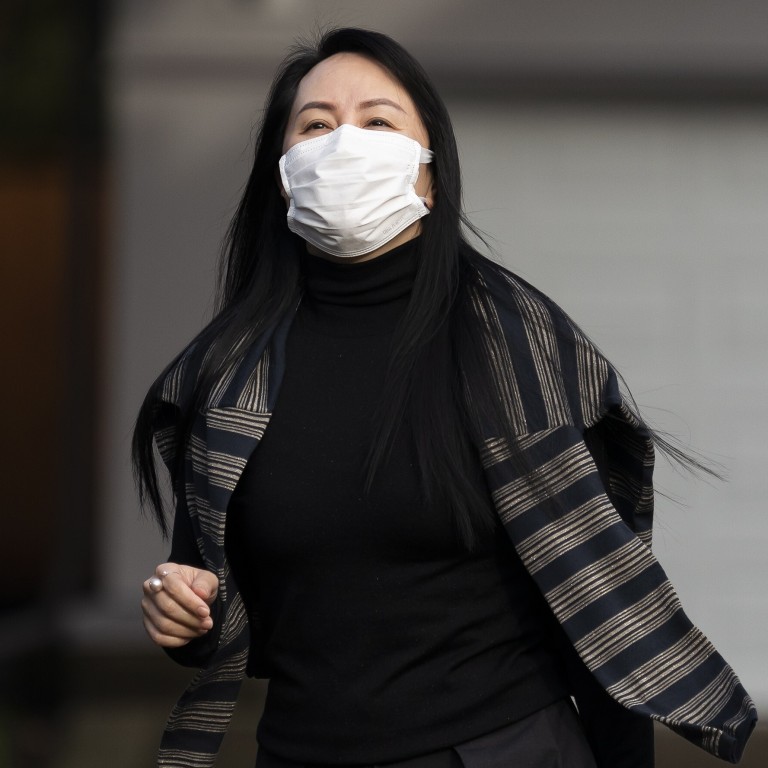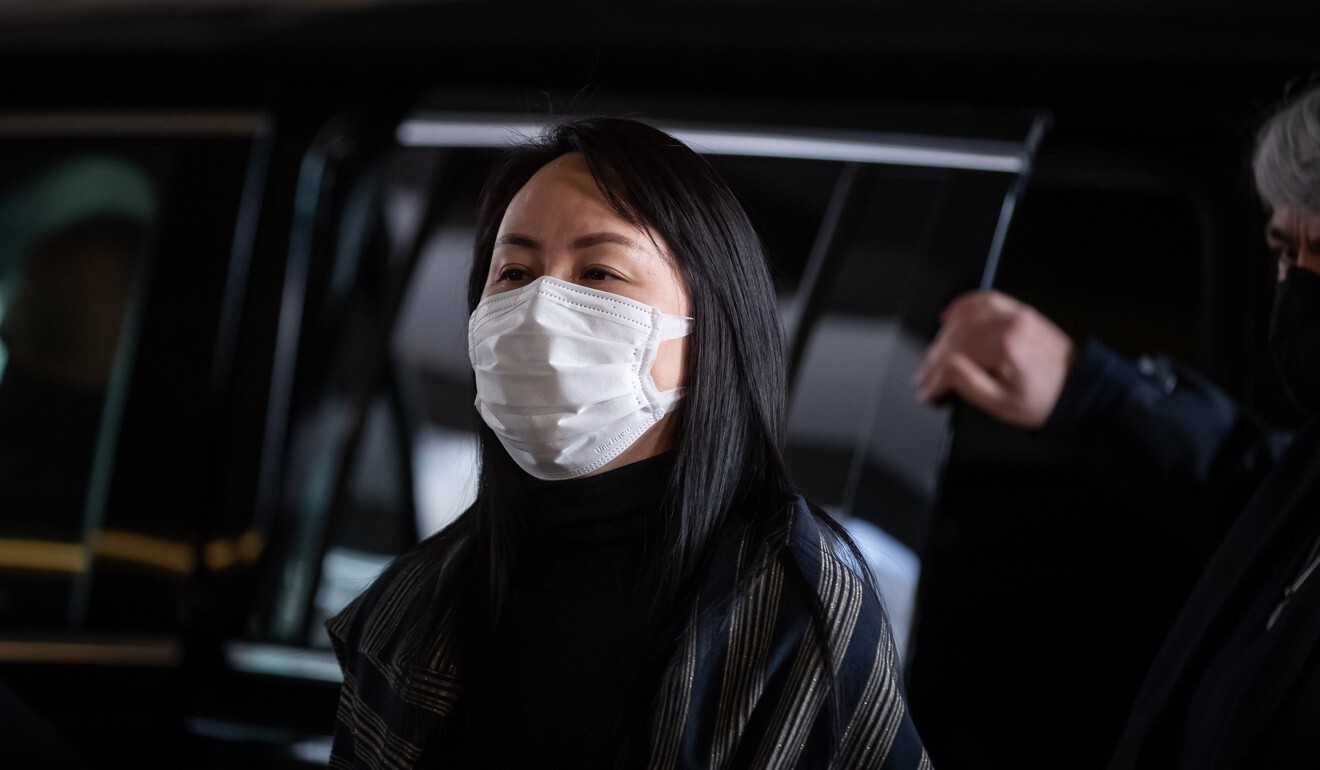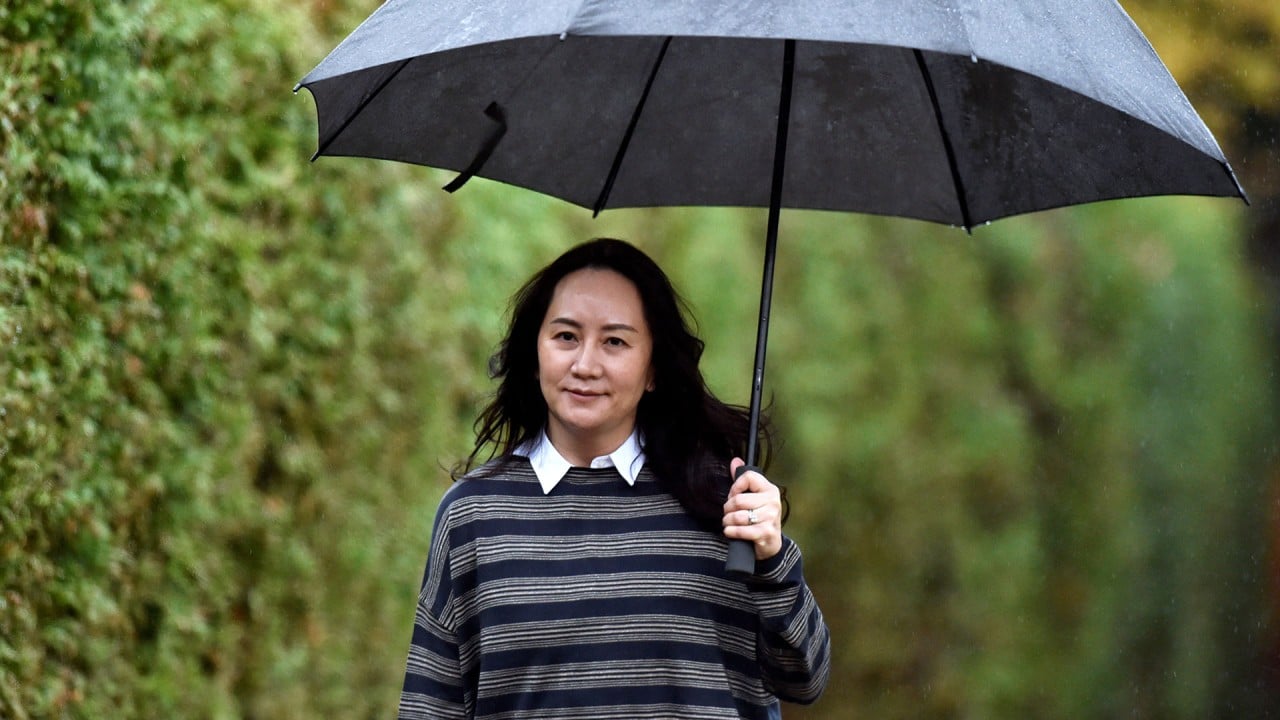
Meng Wanzhou’s lawyers say HSBC ‘fully knew’ that Huawei controlled affiliates that did business in Iran
- US claims that Meng misled the bank are unreliable, an extradition hearing in Vancouver is told
- But a Canadian government lawyer said Meng’s team was trying to distract the judge, and they should ‘save it for the trial’
HSBC bankers “fully knew” that Huawei Technologies controlled the accounts of affiliates through which it did business in Iran, undermining US claims that Meng Wanzhou defrauded the bank by allegedly lying about the relationships, a Vancouver court heard on Monday.
But a Canadian government lawyer at the extradition hearing said it was inappropriate for the judge to weigh evidence that would be eventually be presented in New York if Meng were sent there to face the accusations, which she denies.
“Save it for the trial,” said Robert Frater, representing US interests in the extradition case. He said Meng’s lawyers were trying to “distract” Associate Chief Justice Heather Holmes from her purpose of weighing extradition.
Meng’s lawyers are pressing their claim this week that the Huawei executive is the victim of an abuse of process, and that former US president Donald Trump tainted the American fraud case against her so badly that the US bid to have her extradited from Canada should be thrown out by the Supreme Court of British Columbia.
They are also seeking to further a separate argument about the alleged abuse, that US authorities misled the court with their records of the case. They are applying to have a series of affidavits admitted to the court to bolster that claim.
On Monday, Meng’s lawyer Frank Addario told Holmes that the record of the case submitted by the US was “manifestly unreliable”.
Meng is accused of defrauding HSBC by lying about Huawei’s business interests in Iran, conducted through a company called Skycom, which potentially exposed the bank to the risk of breaching US sanctions on the country.
Huawei’s Meng takes HSBC to court in Hong Kong to seek bank’s papers
Addario said the US record of the case left the court with the impression that as a result of a 2013 meeting between Meng and Witness One, an HSBC banker in Hong Kong, the bank believed Skycom had been sold by Huawei to an arm’s-length third-party company.
But Addario said that Witness Two, another HSBC banker who managed the relationship with Huawei, “fully knew” that Skycom had been sold to a company called Canicula Holdings, whose accounts were still controlled by Huawei.
“The risk committee at the bank relied on” Witness Two, said Addario, and US claims otherwise were “very misleading as it underplays what [he] told the global risk committee,” referring to the bank group that decided to continue working with Huawei in 2014.

“Canicula was no mere third party, it was a non-arm’s-length affiliate whose bank accounts were managed by Huawei,” said Addario. In addition to Witness Two, “plenty of other people at the bank” were aware of this, he said, and it was “never a secret”.
In HSBC emails, Skycom and Canicula were consistently referred to as “Huawei accounts”, Addario said.
Holmes suggested that a fraud could be committed against a bank, even if its staff “lower down the hierarchy” understood the fraud or had information about it.
Addario responded that Witness Two “was far more than a gofer, he was the primary conduit of information” between HSBC and Huawei.
“Either he’s lied to the global risk committee … or he’s told them the truth and the requesting state has not told you the truth,” Addario told Holmes, adding that “either way the evidence should be in front of you.”
Meng Wanzhou seeks HSBC records to counter Iran-linked fraud claims
During his remarks, Addario initially identified both witnesses by their full names, prompting the Crown to complain; Holmes immediately imposed a publication ban on their full names.
In rebuttal, Frater said there was an “inappropriate purpose” behind Addario seeking to admit the new affidavits, which represented an argument best made at trial and not at the extradition phase.
“An extradition hearing is not a trial,” Frater said. “To the extent that there is a weighing function, it is a limited weighing function,” he added.
He told Holmes: “Your job is not to get bogged down in minutiae, the six-point font of emails.”
Addario had presented “standard defence cross-examination material”, which was not a matter for an extradition hearing. “If they get to trial they will confront all of those witnesses … That’s why we have trials,” Frater said.
The proposed evidence “has no relevance to your function of deciding whether to commit [Meng]”, he told Holmes.

04:43
How the arrest of Huawei CFO Meng Wanzhou soured China's relations with the US and Canada
The allegations that Meng is the victim of an abuse of process and that she was a pawn in Trump’s trade war with China have hung over the extradition case since she was arrested at Vancouver’s airport on December 1, 2018, throwing China’s relations with Washington and Ottawa into disarray.
The suspicions were highlighted 10 days later when Trump told the Reuters news agency he would “certainly intervene” in the case if it helped strike a trade deal with China.
Meng’s lawyers said this and other remarks by US officials showed the case was politically tainted.
Canadian government lawyers, acting on behalf of US interests in the extradition case, say the entire argument is moot because Trump is no longer president. They have called the argument weak and “hyperbolic”.
Hearings in the Vancouver extradition case are expected to continue until May 14, but appeals could drag proceedings out for years.
Meng, who is Huawei’s chief financial officer and the daughter of company founder Ren Zhengfei, is living under partial house arrest at a C$13 million (US$10.2 million) home she owns in Vancouver.
Holmes adjourned the case until Wednesday morning.

